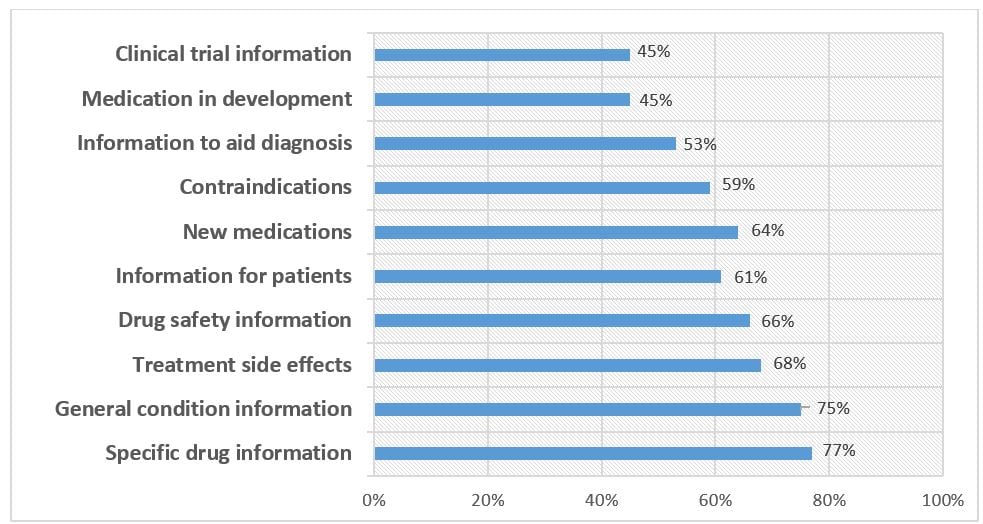With two-thirds of the world’s population being internet users and 60 percent of usage from smartphones, it is obvious that consumers look out for digital experiences. These trends show that digital transformation for enterprises isn’t an option anymore. Despite of this, most of the pharmaceutical companies are still hesitant to prefer digital transformation. This is due to the fear of potential risks that may occur in the migration process. To assist pharmaceutical companies in the digital transformation journey, we present the prospects that will help them to understand: “how digital transformation adaption can be a game changer”.
Decoding the Digital Behavior of Pharmaceutical Consumers
In today’s smartphone and internet era, more than 80% of physicians use the Internet and are active in social media too. Most of the physicians and Medical Health Practitioners (MHP) are depending on online knowledge base sources and forums to get updated about the contemporary medical practices and advancements. A Google survey of 1,000 doctors reveals that 73% of physicians’ state that they depend on the internet means to gain knowledge of clinical information and clear their doubts.
Most of the physicians and MHPs claim that their patients, being digitally enabled, are now proactively referring to various online sources to seek knowledge about their drug’s side effects and functionality issues. Some patients, prior to visiting a doctor, are using online sources and even getting their health analysis reports- such as drugs related information, and assuming the type of disease they may have. This is a fraction of the impact digitization has on consumers.
In such a situation, visiting a doctor in person is becoming just an act of validation of the disease. It is estimated that one in every twenty Google searches is about health. One of the reports by Accenture states that “68% of patients are online several hours a day and prefer pharmaceutical companies reach them predominantly through digital channels "to provide services that help them manage their health”.
Figure: Online Search Topics Consumer look for
Decoding Digital Transformation Solution For Pharma Industry
Risks associated with legacy systems are quite higher than the risks associated with legacy system modernization”
To stay relevant and survive in this globalized business environment, it is time for the pharmaceutical companies to modernize their legacy business and engagement models (which hasn’t changed so far). Here, digital transformation solutions can be key to modernize the pharmaceutical legacy system (know how legacy systems can harm your business) models. These solutions offer positive customer experiences, and more informed business decisions.
Make Your Service Delivery Efficient
The biggest problem in the pharmaceutical industry is budding companies are making it challenging for the larger players to attract and retain their empowered customers. In the era, where consumers are self-motivated to shape their own journeys it can be challenging to win the consumers trust. These enterprises need innovative ways to reach out and engage with consumers through the digital platforms (like social platforms, apps, and so on).
To reduce the digital gap between end-consumers and companies, the companies need to evolve their digital strategies to ensure that the communication channels are made consumer-friendly. Most companies are leveraging social media to make consumers find it easier to interact and bridge the gap. However this isn’t enough, as providing steady support 24/7 at low cost is a big challenge.
To overcome this deploying virtual assistants or digital assistants like chatbots and voice assistants can be a better solution. These offer 24/7 support to any number of consumers with the information they need about medications or medical assistance. It makes it more consumer friendly, with the virtual assistant’s ability to interact with the consumers in a natural language. (Apart from handling consumers, deploying digital assistants within the organization can deliver better employee experiences too)
Improved Customer Service Solutions for Pharma
The "Once a customer, always a customer" rule doesn’t apply anymore. If these chatbots are powered by artificial intelligence abilities they can study the consumer behaviors (by traversing through consumer profiles and interactions with it) and develop consumer personas or behavioral maps. This information provided by chatbots enables the company to cater the consumers interests. Ultimately, this results in the personalizing of consumer interactions. Chatbots and voice assistants improve service delivery efficiencies. Also, consumer personas can be used by the marketing and sales teams to generate and nurture a lead.
Digital Assistants can be very effective for marketing over-the-counter (OTC) drugs that do not require a prescription. Companies can offer direct help through chatbots to assist consumers in choosing the right drug. This retains the company’s loyalty in consumer minds.
Driving Analytics for Better Business Decisions
Internal data and analytics drive the business decision-making process. Surprisingly, despite having large chunks of data, pharmaceutical companies are poor at extracting intelligence. Advanced technologies like big data, agile analytics, and AI can help businesses get deeper insights into market dynamics and consumer behavioral intelligence. These are the key in driving the strategic business decision making process.
Conclusion
In the pharmacy industry digitization has only been leveraged in manufacturing, designing, analysis and for regulatory submissions. Now, digital transformation solutions can change the game for pharmaceutical companies in all the aspects by getting digital strategies in right place.

















